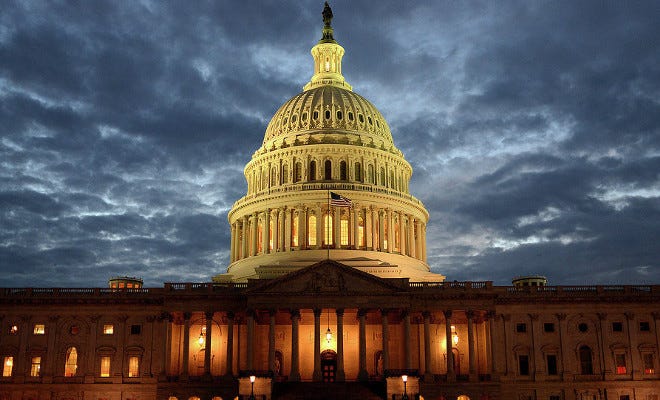Supreme Court is making the case to ditch the filibuster
The Court's EPA case is telling Congress to get to work
There is no silver lining in today’s Supreme Court’s decision in West Virginia v. EPA. The executive branch of the U.S. government is now bereft of tools to make a meaningful dent in emission levels to curb climate change. And this activist court has demonstrated its willingness to develop new doctrines — here the recently minted “major questions doctrine” — to empower it to conduct substantive review of the regulatory work product of an elected branch of government (that is, the executive branch).
But at bottom, this case is a message to every member of Congress that it is time to get to work. And there is no way for Congress to do this while the filibuster is in place.
In a nutshell, the Court has ruled that EPA regulations designed to force a shift from coal-fired power plants to natural gas or renewable sources of energy present such substantial economic and political issues that they must be based on clear, unambiguous congressional authorization to do so. The Court could not find such authority in the Clean Air Act - and thus struck down the EPA’s entire approach to curbing carbon emissions.
What this means is that going forward, Congress, if it is to deal with climate change, or any other of the myriad of problems facing the nation and world, is going to have to legislate with much more frequency and in much more detail than it has for decades.
And there is only one way for our moribund Congress to be able to do so - and that is to end the Senate filibuster.
Don’t forget, it wasn’t all that long ago that use of the filibuster was rare and that legislation that could muster majority support in the House and then 51 votes in the Senate could get enacted. That is how we got Social Security in the 1930s, Medicare and Medicaid in the 1960s, and rafts of environmental and other health and safety regulation in the 1970s. But as the filibuster evolved from a rarely used method to extend debate on an issue, to an iron-clad threshold of 60 votes for any legislation to even reach the floor for consideration, the lawmaking gears of the Congress slowed to a grinding halt. And because of the filibuster, Congress’s legislative capabilities have atrophied - even when there is political will - Congress isn’t very good at doing is primary function under the Constitution - legislating.
Yes, eliminating the filibuster will weaken the rights of the minority. Yes, we could have wild swings in the law when majorities in Congress swing from one party to the other. But these ills are both overstated and entirely manageable compared to the current crisis - where all our problems are getting worse and all our tools for addressing them are dysfunctional.
Like this content, consider a (free) subscription:





Insightful commentary . I learned a lot. Try happy to subscribe !